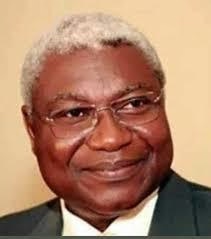AeroGenie — Ihr intelligenter Copilot.
Trends
Categories
Nigeria Among the Most Expensive African Countries for Air Travel, Says Adede

Nigeria Among the Most Expensive African Countries for Air Travel, Says Adede
Senator Musa Adede, an experienced airline owner and former lawmaker with deep expertise in aviation, has drawn attention to the significant challenges confronting Nigeria’s aviation sector. In a recent interview, he called for urgent reforms aimed at reducing costs and enhancing the industry’s competitiveness both regionally and internationally.
Challenges and Recommendations for Reform
Adede emphasized the need for comprehensive government intervention to revitalize the sector. Central to his recommendations is the reduction of taxes and levies imposed on passengers and airlines, which he believes would improve profitability and stimulate growth. He also advocated for the development of domestic Maintenance, Repair, and Overhaul (MRO) facilities through targeted concessions and customs exemptions, enabling airlines to maintain aircraft locally rather than relying on costly foreign services. Furthermore, Adede highlighted the critical importance of upgrading airport infrastructure to meet international standards, including the installation of modern amenities such as boarding bridges, lifts, conveyor belts, control towers, and reliable air conditioning systems.
In addition to infrastructure improvements, Adede called for transparent and consistent regulatory oversight. He stressed the need to harmonize regional fees and procedures to support initiatives like the Single Africa Air Transport Market (SAATM), which aims to foster greater integration and efficiency across African aviation markets. According to Adede, these measures would enable airlines to operate more efficiently, enhance safety, reduce capital flight, and strengthen their ability to compete on both regional and global stages.
High Costs and Infrastructure Deficiencies
Nigeria currently ranks among the most expensive countries in Africa for air travel, a position corroborated by recent reports from the African Airlines Association (AFRAA), which place the country third or fourth in terms of aviation charges. Adede attributed these elevated costs primarily to high fuel prices and ongoing economic challenges that have persisted into 2025. He noted that these factors, combined with infrastructure deficits and regulatory complexities, have adversely affected airline profitability and market dynamics.
While other African nations such as South Africa, Ethiopia, and Senegal have made significant strides in modernizing their airports—particularly during the COVID-19 pandemic—Nigeria has lagged behind in this regard. Adede urged the government to prioritize airport upgrades, streamline fees, and provide robust support for domestic MROs and equipment concessions to ensure Nigeria remains competitive within the region.
The Strategic Importance of Domestic MRO Facilities
Adede underscored the vital role of domestic MRO facilities, citing examples such as those in Uyo, Akwa Ibom State, as well as private operators like ExecuJet and Aero. He explained that sending aircraft abroad for maintenance is both costly and inefficient. Local MROs enable airlines to directly oversee maintenance activities, reduce aircraft downtime, cultivate local technical expertise, and improve overall safety standards. These facilities perform a wide range of critical tasks, from avionics servicing to structural inspections and major overhauls involving the disassembly and reassembly of aircraft interiors.
He called for increased government support, particularly through customs exemptions on equipment imports, to encourage further investment in MRO infrastructure. Adede highlighted the benefits of domestic MROs in reducing capital flight, creating employment opportunities, and ensuring transparency and quality in maintenance operations. Drawing on international examples such as Dubai’s extensive hangar facilities, he illustrated the urgent need to expand Nigeria’s MRO capacity.
Regional Competition and Future Outlook
Adede acknowledged that the high operational costs faced by Nigerian airlines have compelled them to adjust pricing strategies or explore alternative routes. He also noted that regional economic and trade agreements, including those within the Economic Community of West African States (ECOWAS), could significantly influence Nigeria’s positioning within the broader African aviation market.
To address these challenges, Adede recommended several urgent priorities, including the construction of a second runway to enhance security and operational capacity, ensuring all airports operate 24 hours with adequate lighting, and encouraging foreign airlines to employ qualified Nigerian pilots and staff. He lamented that while many reports highlight aviation problems, few offer substantive solutions, urging the government to act decisively to secure the future of Nigeria’s aviation sector.

Emirates Unveils Cabin Design for New Boeing 777X

Eighteen Years On, the Airbus A380 Remains Central to a $34 Billion Airline

How a boom in luxury airline seats is slowing down jet deliveries

Navitaire Outage Attributed to Planned Maintenance

DigiYatra Debuts Outside Aviation at India AI Impact Summit

Vietnam Orders Strengthen Boeing’s Commercial Outlook

Airbus Signals Uncertainty Over Future A400M Orders

JobsOhio Awards $2 Million Grant to Hartzell Propeller for Innovation Center

Collins Aerospace Tests Sidekick Autonomy Software on YFQ-42A for U.S. Air Force CCA Program

How the Airbus A350-1000 Compares to the Boeing 777
